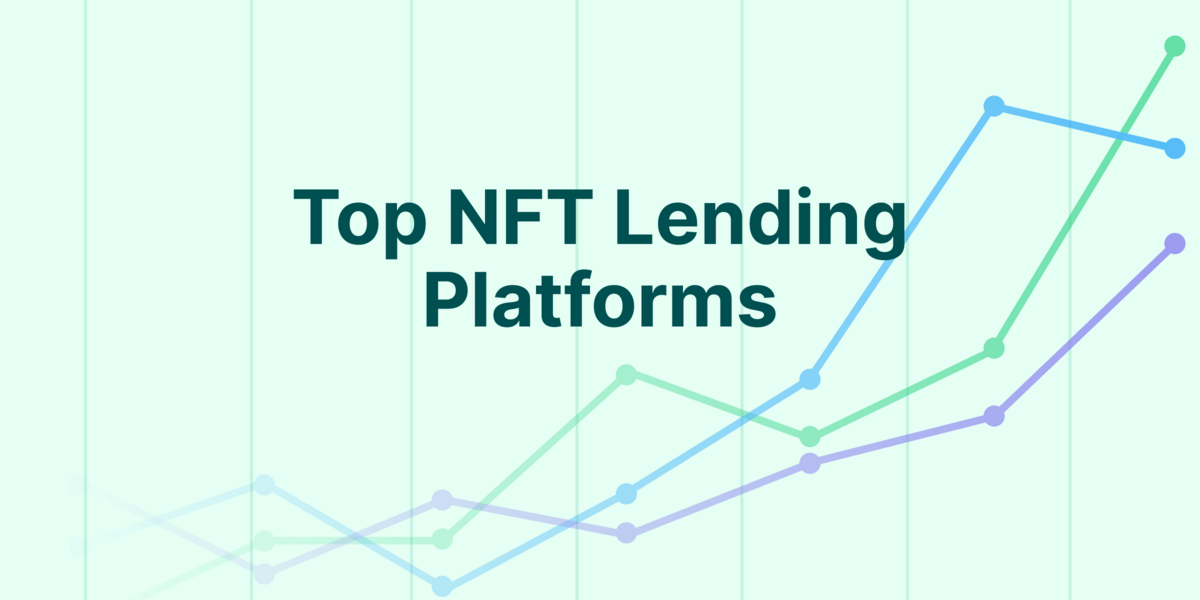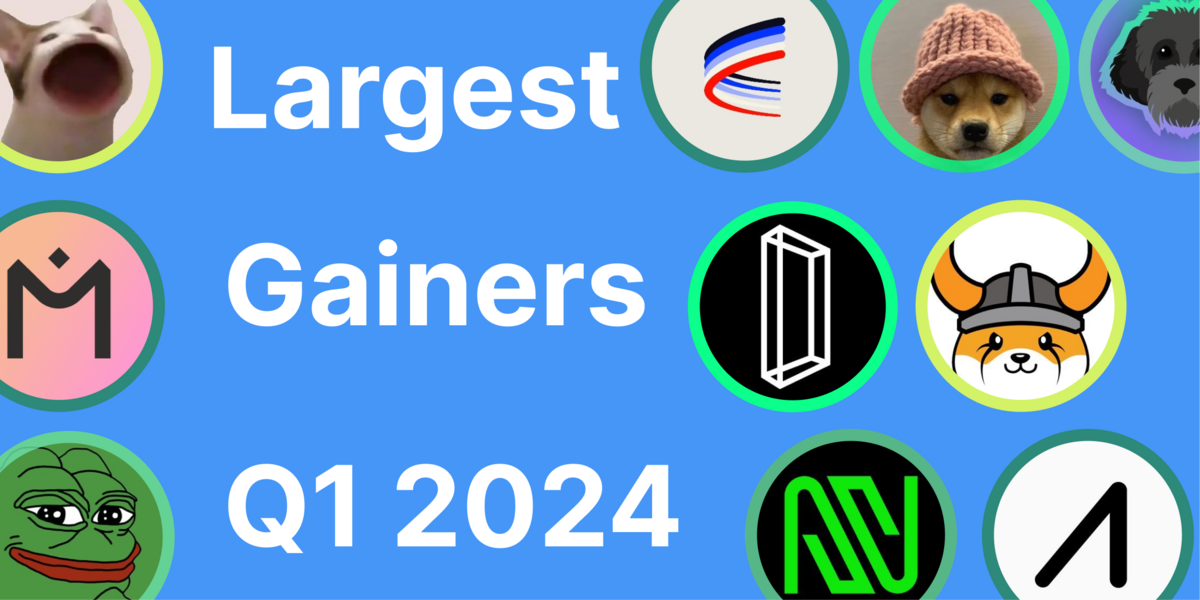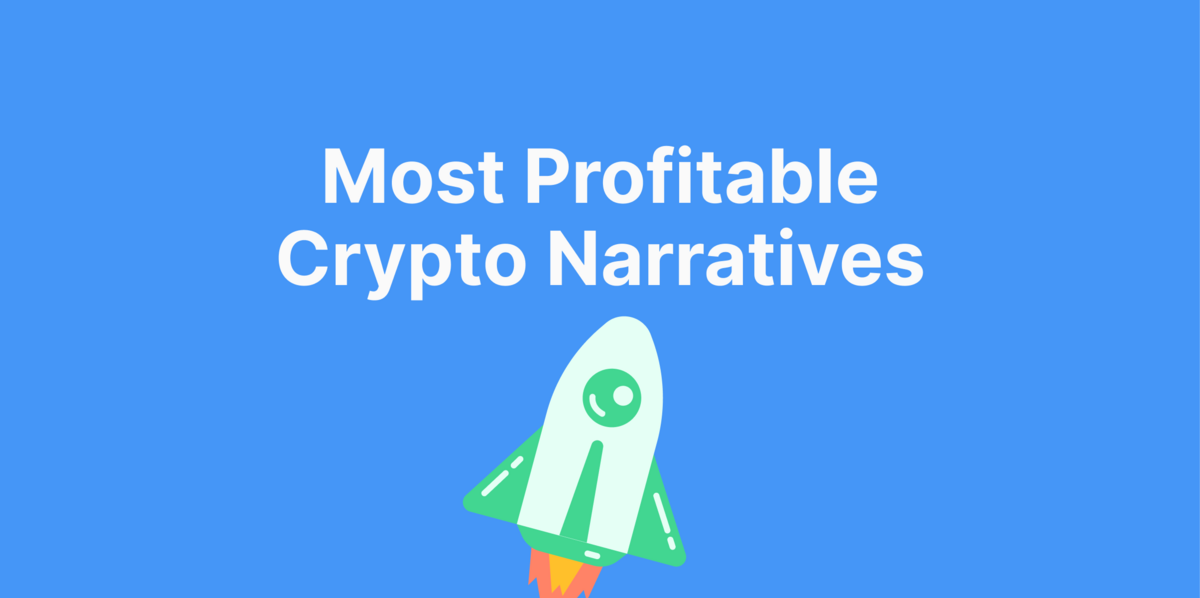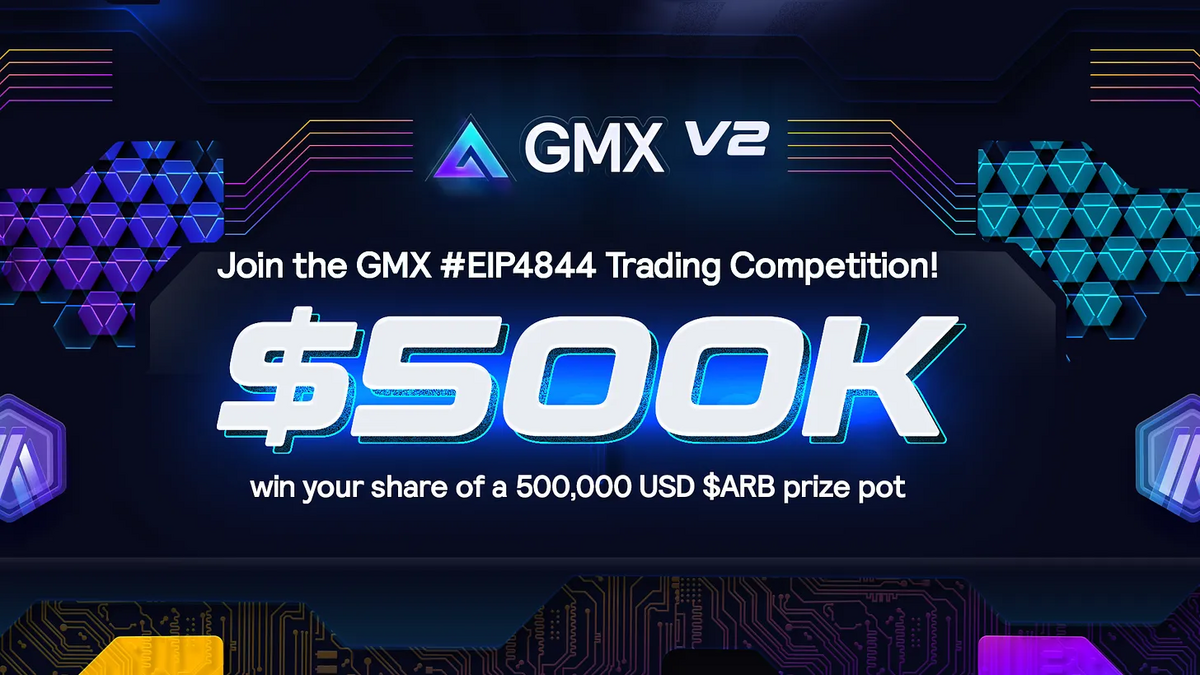Top 100 DeFi Coins by Market Capitalization
| # | Coin | Price | 1h | 24h | 7d | 30d | 24h Volume | Market Cap | FDV | Market Cap / FDV | Last 7 Days | ||
|---|---|---|---|---|---|---|---|---|---|---|---|---|---|
| 7 |

Lido Staked Ether
STETH
|
Buy
|
$3,116.09 | 0.2% | 0.9% | 2.4% | 12.9% | $88,160,136 | $29,149,264,182 | $29,149,264,182 | 1.0 |
|
|
| 18 |

Chainlink
LINK
|
Buy
|
$14.06 | 0.0% | 4.0% | 0.2% | 28.7% | $363,360,110 | $8,267,334,919 | $14,081,647,628 | 0.59 |
|
|
| 23 |

Uniswap
UNI
|
Buy
|
$7.64 | 0.4% | 0.9% | 1.8% | 38.7% | $123,950,989 | $5,768,266,126 | $7,652,588,497 | 0.75 |
|
|
| 25 |

Dai
DAI
|
Buy
|
$0.9995 | 0.0% | 0.0% | 0.2% | 0.1% | $660,007,069 | $5,220,226,988 | $5,220,226,988 | 1.0 |
|
|
| 45 |

Maker
MKR
|
Buy
|
$2,892.70 | 0.2% | 1.2% | 3.6% | 13.4% | $101,272,289 | $2,676,768,651 | $2,828,693,618 | 0.95 |
|
|
| 49 |

The Graph
GRT
|
Buy
|
$0.2627 | 1.3% | 0.2% | 2.0% | 37.9% | $75,320,904 | $2,498,232,244 | $2,842,029,262 | 0.88 |
|
|
| 61 |

Lido DAO
LDO
|
$1.94 | 0.0% | 2.3% | 1.6% | 34.8% | $38,387,804 | $1,732,162,432 | $1,942,508,637 | 0.89 |
|
||
| 62 |

THORChain
RUNE
|
$4.99 | 0.2% | 8.0% | 5.7% | 47.1% | $279,802,753 | $1,676,996,798 | $2,071,201,220 | 0.81 |
|
||
| 76 |

Jupiter
JUP
|
$0.9816 | 0.5% | 3.7% | 6.2% | 24.1% | $87,600,074 | $1,330,309,354 | $9,854,143,362 | 0.14 |
|
||
| 77 |

Aave
AAVE
|
Buy
|
$88.93 | 0.6% | 0.9% | 3.5% | 29.9% | $101,453,310 | $1,316,361,008 | $1,422,209,390 | 0.93 |
|
|
| 83 |

Ethena
ENA
|
$0.8119 | 0.8% | 4.6% | 17.0% | - | $450,621,803 | $1,162,316,548 | $12,234,911,033 | 0.1 |
|
||
| 87 |

dYdX
DYDX
|
$2.11 | 0.2% | 2.7% | 7.0% | 39.1% | $10,303,989 | $1,062,011,444 | $1,529,536,105 | 0.69 |
|
||
| 94 |

Ribbon Finance
RBN
|
$1.06 | 0.5% | 3.7% | 3.4% | 36.5% | $2,625,506 | $1,009,477,759 | $1,054,238,179 | 0.96 |
|
||
| 100 |

Synthetix Network
SNX
|
Buy
|
$2.86 | 0.0% | 1.8% | 3.3% | 41.8% | $27,234,782 | $938,891,798 | $940,106,079 | 1.0 |
|
|
| 109 |

Pyth Network
PYTH
|
$0.5723 | 0.2% | 3.5% | 9.1% | 37.3% | $41,177,565 | $861,426,233 | $5,742,841,553 | 0.15 |
|
||
| 110 |

Gnosis
GNO
|
$325.59 | 0.1% | 1.6% | 5.4% | 11.7% | $4,137,455 | $843,431,109 | $977,102,284 | 0.86 |
|
||
| 113 |

Marinade staked SOL
MSOL
|
$161.24 | 0.1% | 5.4% | 3.7% | 26.8% | $8,489,668 | $827,208,401 | $827,208,401 | 1.0 |
|
||
| 120 |

PancakeSwap
CAKE
|
$2.72 | 0.1% | 1.4% | 2.3% | 42.0% | $46,111,062 | $711,705,599 | $1,060,516,139 | 0.67 |
|
||
| 128 |

dYdX
ETHDYDX
|
$2.12 | 0.1% | 2.6% | 6.8% | 39.1% | $54,192,904 | $659,009,165 | $1,091,536,905 | 0.6 |
|
||
| 132 |
Frax
FRAX
|
Buy
|
$0.9982 | 0.1% | 0.1% | 0.3% | 0.0% | $49,183,010 | $648,897,927 | $648,897,927 | 1.0 |
|
|
| 133 |
Frax Ether
FRXETH
|
$3,101.68 | 0.1% | 1.2% | 2.1% | 12.3% | $12,502,992 | $628,170,860 | $628,170,860 | 1.0 |
|
||
| 136 |

Terra Luna Classic
LUNC
|
$0.0001048 | 1.2% | 3.2% | 3.7% | 32.4% | $35,849,686 | $609,266,813 | $712,899,709 | 0.85 |
|
||
| 140 |

Osmosis
OSMO
|
$0.9155 | 0.4% | 1.1% | 0.5% | 33.1% | $12,005,244 | $601,929,386 | $914,317,048 | 0.66 |
|
||
| 147 |

Aerodrome Finance
AERO
|
$1.34 | 0.9% | 6.3% | 19.2% | 18.8% | $21,334,277 | $566,049,266 | $1,341,761,707 | 0.42 |
|
||
| 150 |

WOO
WOO
|
$0.2997 | 0.2% | 4.9% | 1.8% | 35.2% | $15,207,384 | $557,650,177 | $669,648,988 | 0.83 |
|
||
| 155 |

Pendle
PENDLE
|
$5.44 | 0.2% | 5.0% | 7.0% | 28.2% | $94,261,197 | $528,654,582 | $1,409,258,976 | 0.38 |
|
||
| 158 |

Curve DAO
CRV
|
$0.4341 | 0.5% | 0.7% | 0.5% | 38.5% | $51,011,879 | $521,318,294 | $919,126,864 | 0.57 |
|
||
| 161 |

1inch
1INCH
|
Buy
|
$0.4310 | 0.6% | 0.4% | 3.8% | 27.8% | $28,427,615 | $498,820,528 | $646,300,016 | 0.77 |
|
|
| 162 |
Staked Frax Ether
SFRXETH
|
$3,371.21 | 0.2% | 1.1% | 2.4% | 12.0% | $895,424 | $496,853,268 | $496,853,268 | 1.0 |
|
||
| 177 |

Rocket Pool
RPL
|
$21.41 | 0.5% | 1.3% | 3.4% | 34.0% | $5,542,068 | $435,068,867 | $435,068,867 | 1.0 |
|
||
| 186 |

0x Protocol
ZRX
|
$0.4985 | 0.0% | 2.5% | 6.0% | 54.4% | $14,866,715 | $422,689,823 | $498,751,375 | 0.85 |
|
||
| 193 |

Amp
AMP
|
$0.007151 | 0.2% | 3.8% | 2.5% | 31.2% | $15,026,885 | $401,754,169 | $711,856,999 | 0.56 |
|
||
| 194 |

Raydium
RAY
|
$1.52 | 0.2% | 5.2% | 2.5% | 24.6% | $13,763,854 | $399,986,046 | $844,878,950 | 0.47 |
|
||
| 198 |

Compound
COMP
|
Buy
|
$55.73 | 0.2% | 0.1% | 1.8% | 29.1% | $28,878,221 | $382,030,495 | $557,213,705 | 0.69 |
|
|
| 199 |

Jito
JTO
|
$3.11 | 0.1% | 2.3% | 16.3% | 4.1% | $76,340,986 | $378,266,715 | $3,122,934,475 | 0.12 |
|
||
| 200 |

cETH
CETH
|
$62.67 | 0.2% | 0.9% | 2.3% | 12.9% | $1,664.95 | $377,888,790 | $377,888,790 | 1.0 |
|
||
| 207 |
Frax Share
FXS
|
$4.45 | 0.5% | 0.3% | 10.5% | 42.5% | $16,508,052 | $353,009,192 | $445,091,201 | 0.79 |
|
||
| 217 |

JUST
JST
|
$0.03360 | 0.1% | 0.3% | 3.7% | 15.6% | $23,407,082 | $333,084,171 | $333,084,171 | 1.0 |
|
||
| 218 |

cWBTC
CWBTC
|
$1,263.45 | 0.1% | 2.4% | 1.3% | 11.2% | $0.00 | $331,047,598 | $331,047,598 | 1.0 |
|
||
| 226 |

Loopring
LRC
|
$0.2539 | 0.1% | 2.8% | 0.7% | 36.3% | $14,085,263 | $316,859,780 | $349,380,580 | 0.91 |
|
||
| 229 |

Reserve Rights
RSR
|
$0.006008 | 0.3% | 3.2% | 0.6% | 44.9% | $20,000,873 | $304,580,261 | $601,937,275 | 0.51 |
|
||
| 235 |

API3
API3
|
$2.38 | 0.7% | 1.8% | 0.3% | 38.4% | $13,253,766 | $272,141,988 | $312,298,071 | 0.87 |
|
||
| 238 |

Nexus Mutual
NXM
|
$65.08 | 0.2% | 0.6% | 3.3% | 11.2% | $0.00 | $263,376,677 | $263,376,677 | 1.0 |
|
||
| 243 |

GMX
GMX
|
$27.01 | 0.1% | 0.6% | 4.2% | 40.9% | $17,786,393 | $255,844,590 | $255,844,590 | 1.0 |
|
||
| 245 |

Coin98
C98
|
$0.2810 | 0.2% | 3.3% | 0.7% | 30.1% | $8,105,429 | $253,724,169 | $345,725,642 | 0.73 |
|
||
| 264 |

yearn.finance
YFI
|
Buy
|
$6,951.70 | 0.1% | 0.3% | 0.5% | 22.8% | $17,131,553 | $232,604,297 | $255,237,638 | 0.91 |
|
|
| 265 |

Goldfinch
GFI
|
$3.21 | 1.3% | 5.0% | 11.6% | 24.0% | $3,812,921 | $230,640,755 | $367,593,204 | 0.63 |
|
||
| 276 |

UMA
UMA
|
$2.77 | 0.6% | 1.2% | 3.6% | 35.3% | $8,497,421 | $221,264,765 | $329,366,465 | 0.67 |
|
||
| 282 |

Band Protocol
BAND
|
$1.52 | 0.1% | 0.3% | 1.9% | 31.9% | $6,502,116 | $215,956,698 | $222,668,192 | 0.97 |
|
||
| 283 |

Balancer
BAL
|
$3.80 | 0.0% | 0.0% | 0.8% | 26.6% | $7,994,658 | $214,678,594 | $239,876,206 | 0.89 |
|
||
| 285 |

Tribe
TRIBE
|
$0.4634 | 0.7% | 2.0% | 2.1% | 8.6% | $113,297 | $210,933,122 | $463,573,456 | 0.46 |
|
||
| 289 |

Convex Finance
CVX
|
$2.55 | 0.5% | 2.9% | 1.5% | 39.1% | $5,586,887 | $209,003,414 | $253,757,039 | 0.82 |
|
||
| 296 |

Olympus
OHM
|
$12.26 | 0.0% | 0.4% | 1.2% | 0.1% | $178,005 | $200,901,288 | $272,218,299 | 0.74 |
|
||
| 297 |

Ampleforth
AMPL
|
$1.04 | 0.4% | 6.7% | 2.6% | 9.3% | $1,613,691 | $200,823,054 | $235,183,951 | 0.85 |
|
||
| 300 |

Sushi
SUSHI
|
$1.02 | 0.5% | 0.4% | 5.3% | 43.5% | $41,016,371 | $196,698,799 | $255,279,799 | 0.77 |
|
||
| 312 |

VVS Finance
VVS
|
$0.054032 | 0.2% | 4.5% | 0.3% | 20.9% | $1,981,571 | $182,202,020 | $349,551,443 | 0.52 |
|
||
| 313 |

tBTC
TBTC
|
$62,842.48 | 0.1% | 2.3% | 1.2% | 11.2% | $7,288,463 | $181,727,448 | $181,727,448 | 1.0 |
|
||
| 317 |

JOE
JOE
|
$0.5189 | 0.4% | 3.4% | 0.1% | 42.8% | $5,100,554 | $177,527,431 | $259,802,854 | 0.68 |
|
||
| 318 |
Seedify.fund
SFUND
|
$2.78 | 0.1% | 2.0% | 2.4% | 37.6% | $4,860,731 | $176,933,867 | $278,489,313 | 0.64 |
|
||
| 323 |

Marlin
POND
|
$0.02106 | 0.0% | 4.9% | 11.8% | 41.1% | $3,860,433 | $170,422,592 | $170,422,592 | 1.0 |
|
||
| 332 |

Oraichain
ORAI
|
$10.40 | 0.2% | 3.6% | 6.2% | 29.9% | $5,650,449 | $165,431,479 | $184,144,132 | 0.9 |
|
||
| 334 |

Alchemix USD
ALUSD
|
$0.9880 | 0.1% | 0.2% | 0.2% | 0.8% | $278,572 | $165,096,292 | $165,096,292 | 1.0 |
|
||
| 340 |

Numeraire
NMR
|
$25.30 | 0.6% | 2.1% | 1.3% | 33.9% | $4,809,271 | $159,017,302 | $271,439,930 | 0.59 |
|
||
| 341 |

Venus
XVS
|
$10.06 | 0.4% | 3.1% | 1.3% | 38.5% | $6,865,947 | $158,487,132 | $299,699,911 | 0.53 |
|
||
| 345 |

Aevo
AEVO
|
$1.43 | 0.8% | 2.8% | 6.3% | 58.3% | $45,099,969 | $157,788,211 | $1,434,438,278 | 0.11 |
|
||
| 358 |
TokenFi
TOKEN
|
$0.1075 | 0.1% | 6.3% | 2.9% | 42.7% | $11,660,852 | $150,012,549 | $1,077,126,448 | 0.14 |
|
||
| 371 |

inSure DeFi
SURE
|
$0.005489 | 3.1% | 1.4% | 5.2% | 20.6% | $1,249,651 | $145,228,255 | $482,593,697 | 0.3 |
|
||
| 372 |
Tellor Tributes
TRB
|
$55.95 | 1.0% | 2.3% | 1.9% | 40.1% | $37,987,840 | $144,279,089 | $146,870,434 | 0.98 |
|
||
| 376 |

SmarDex
SDEX
|
$0.01704 | 0.1% | 2.1% | 4.0% | 19.2% | $651,990 | $141,902,142 | $170,209,065 | 0.83 |
|
||
| 402 |

Spell
SPELL
|
$0.0008888 | 0.5% | 2.6% | 1.5% | 26.5% | $7,338,034 | $126,297,649 | $174,528,482 | 0.72 |
|
||
| 403 |

Orca
ORCA
|
$2.51 | 1.5% | 9.7% | 5.6% | 36.1% | $1,840,015 | $125,720,513 | $251,489,555 | 0.5 |
|
||
| 408 |

TrueFi
TRU
|
$0.1095 | 1.1% | 2.3% | 6.0% | 37.1% | $6,023,159 | $122,859,106 | $135,283,622 | 0.91 |
|
||
| 412 |

crvUSD
CRVUSD
|
$0.9992 | 0.0% | 0.1% | 0.0% | 0.5% | $32,055,380 | $121,317,983 | $121,317,983 | 1.0 |
|
||
| 415 |

Covalent
CQT
|
$0.1877 | 0.0% | 5.3% | 3.9% | 44.4% | $1,243,553 | $119,119,874 | $187,870,983 | 0.63 |
|
||
| 416 |

DODO
DODO
|
$0.1806 | 1.1% | 0.0% | 14.5% | 31.0% | $11,388,059 | $118,628,255 | $180,191,911 | 0.66 |
|
||
| 419 |

Gains Network
GNS
|
$3.44 | 0.6% | 0.6% | 2.4% | 32.9% | $4,531,926 | $116,863,061 | $116,863,061 | 1.0 |
|
||
| 425 |
Hashflow
HFT
|
$0.2915 | 0.4% | 2.5% | 6.1% | 36.8% | $9,570,796 | $114,686,343 | $292,063,506 | 0.39 |
|
||
| 432 |

Liquity USD
LUSD
|
$0.9992 | 0.0% | 0.0% | 0.1% | 0.4% | $4,723,316 | $111,946,821 | $111,946,821 | 1.0 |
|
||
| 436 |

STP
STPT
|
$0.05682 | 1.0% | 1.4% | 4.1% | 31.5% | $3,208,907 | $110,405,067 | $110,405,067 | 1.0 |
|
||
| 438 |

Bounce
AUCTION
|
$16.91 | 0.5% | 0.5% | 3.9% | 33.0% | $11,884,498 | $110,085,205 | $129,402,964 | 0.85 |
|
||
| 439 |

Gearbox
GEAR
|
$0.02076 | 0.3% | 15.8% | 7.7% | 19.0% | $2,524,957 | $110,076,632 | $207,695,532 | 0.53 |
|
||
| 457 |

Stargate Finance
STG
|
$0.5118 | 1.0% | 4.1% | 0.3% | 32.1% | $11,106,972 | $104,695,103 | $512,336,010 | 0.2 |
|
||
| 458 |

Quasar
QSR
|
$0.1844 | 0.6% | 1.4% | 0.9% | 64.6% | $4,083.46 | $104,556,622 | $117,365,417 | 0.89 |
|
||
| 460 |

LeverFi
LEVER
|
$0.003486 | 2.9% | 5.5% | 41.0% | 26.2% | $34,422,011 | $104,224,720 | $121,814,495 | 0.86 |
|
||
| 466 |
Liquity
LQTY
|
$1.07 | 0.9% | 0.8% | 5.5% | 22.8% | $32,386,780 | $102,960,897 | $107,643,928 | 0.96 |
|
||
| 468 |

Kyber Network Crystal
KNC
|
$0.5965 | 0.2% | 0.6% | 0.5% | 34.7% | $11,280,821 | $102,023,719 | $143,171,448 | 0.71 |
|
||
| 469 |

Tokenlon
LON
|
$0.8985 | 0.2% | 0.3% | 0.2% | 4.2% | $275,741 | $101,528,175 | $121,590,567 | 0.84 |
|
||
| 471 |

Stella
ALPHA
|
$0.1168 | 0.1% | 1.2% | 0.0% | 29.7% | $5,230,518 | $101,473,134 | $116,635,786 | 0.87 |
|
||
| 473 |

ChainGPT
CGPT
|
$0.2327 | 0.1% | 6.0% | 17.6% | 41.4% | $8,706,820 | $100,672,586 | $232,697,662 | 0.43 |
|
||
| 474 |

Hifi Finance
HIFI
|
$0.8119 | 0.4% | 2.6% | 1.3% | 33.0% | $9,126,707 | $100,659,195 | $114,819,785 | 0.88 |
|
||
| 476 |

Maple
MPL
|
$12.77 | 0.6% | 7.7% | 18.3% | 47.3% | $1,987,660 | $100,221,454 | $127,924,550 | 0.78 |
|
||
| 493 |

Keep Network
KEEP
|
$0.1710 | 1.8% | 3.8% | 1.3% | 32.5% | $55,345.16 | $93,887,347 | $170,792,365 | 0.55 |
|
||
| 501 |

Bancor Network
BNT
|
$0.7002 | 0.4% | 1.2% | 0.7% | 22.5% | $479,467 | $90,728,862 | $90,728,862 | 1.0 |
|
||
| 514 |

Pangolin
PNG
|
$0.3976 | 0.4% | 0.2% | 0.0% | 11.0% | $970,004 | $86,210,056 | $213,914,952 | 0.4 |
|
||
| 516 |

Badger
BADGER
|
$4.29 | 0.2% | 1.3% | 2.6% | 41.6% | $6,520,675 | $85,648,695 | $90,243,961 | 0.95 |
|
||
| 534 |

Frontier
FRONT
|
$0.9050 | 1.2% | 1.3% | 17.5% | 29.3% | $13,985,948 | $79,291,392 | $81,597,659 | 0.97 |
|
||
| 538 |

Stafi
FIS
|
$0.5531 | 0.3% | 2.6% | 4.6% | 29.9% | $3,515,295 | $78,414,563 | $78,414,563 | 1.0 |
|
||
| 541 |

Perpetual Protocol
PERP
|
$1.06 | 0.1% | 0.2% | 0.1% | 27.9% | $7,002,028 | $76,916,341 | $158,896,471 | 0.48 |
|
||
| 548 |

Polkastarter
POLS
|
$0.7571 | 0.3% | 1.6% | 3.6% | 37.3% | $2,747,915 | $75,284,364 | $75,775,821 | 0.99 |
|
||
| 569 |

BENQI
QI
|
$0.01566 | 1.8% | 5.3% | 9.2% | 42.9% | $5,096,803 | $70,228,943 | $112,406,168 | 0.62 |
|
||
What is Decentralized Finance (DeFi)?
Decentralized Finance (DeFi) is a financial system that is based on secure distributed ledgers and it is run on a decentralized network of computers instead of a single server. The DeFi financial infrastructure removes the control of central banks and the government on financial services, financial products, and the approval of financial transactions. It is connected with the blockchain, the same decentralized public ledger on which bitcoin is based. The blockchain enables all computers in the network to hold a copy of the history of all transactions conducted on it as this is aimed at ensuring no single entity can control or alter the ledger of transactions.
How Does DeFi Work?
DeFi eliminates third parties and intermediaries in financial transactions. This is done by allowing people to conduct financial transactions through peer-to-peer financial networks that use security protocol, software, connectivity, and hardware advancement. Anyone with an internet connection can lend, borrow and trade using software that records and verifies financial actions in a distributed financial database without needing any approval. Instead of bank accounts, money can be kept in a secure digital wallet and funds can be transferred in seconds. This enables users to have more control over their money.
DeFi uses blockchain technology and applications known as dApps, and these applications are used to handle transactions and run the blockchain. All transactions are recorded in blocks in the blockchain and verified by other users. Once the verifier agrees on a transaction, the block is closed and encrypted, and another block is then created with the information of the previous block within it.
DeFi services are provided via cryptocurrencies and smart contracts that do not require intermediaries. A smart contract is a computer code that acts as a digital agreement between two parties. Smart contracts run on a blockchain. The implication of this is that all information is stored on a database and cannot be altered and running on the blockchain also ensures the automatic processing of smart contracts without a third party. DeFi peer-to-peer transactions are only closed when the conditions in the agreement are met by both parties. The smart contract plays a similar role as the guarantors of transactions which is often played by banks in the traditional financial settings.
The smart contract holds funds and sends or refunds them based on whether the conditions of the agreement between both parties have been met and cannot be altered when a transaction is live. No one can change the contract and no additional accounts can be added to the contract. Contracts under DeFi are public; anyone can scrutinize and audit a transaction and in most cases, bad contracts are subject to community scrutiny.
What are DeFi Coins?
A decentralized finance coin or DeFi coin is like a digital version of a Fiat coin. It transfers value in a financial transaction. DeFi coins are often built to power their own unique native blockchain networks. In most cases, they are also named after their unique, native blockchain networks. The term DeFi coins and DeFi tokens are often used interchangeably, but even though they are similar, they have few differences that matter.
Just like DeFi coins, DeFi tokens also transfer value, but they are not always used in a financial sense. DeFi tokens can be used as passwords to provide access to a resource, they can also be used to represent physical assets like real estate and NFTs. Unlike DeFi coins, DeFi tokens can be built on existing blockchain networks.
Difference Between DeFi and Bitcoin
Bitcoin is a decentralized currency that operates on its own blockchain and is mostly used as a store of value. DeFi, on the other hand, is a concept that covers a range of financial services that are built on public blockchains like Bitcoin and Ethereum and enable users to lend, borrow and trade against their cryptocurrency holdings. Bitcoin can be likened to fiat currency while DeFi is similar to traditional financial institutions like banks. Even though there is an obvious difference between bitcoin and DeFi, they both have the same objective which is the removal of middlemen from financial transactions.
Decentralized Application (dApp)
A decentralized application is a form of distributed open-source software application that runs on a peer-to-peer blockchain network instead of a single computer. Just like other software applications, dApp is supported on a website or a mobile device and the major difference is that they are P2P-supported. dApps are built on a decentralized network supported by a blockchain distributed ledger. They can also be built using the Ethereum platform and EVM. Because of their blockchain origin, dApps can process data and execute transactions through distributed networks.
The decentralized nature of dApps makes the app free from the control of a single authority. This means once a developer has released a dApps code base, other developers can build on top of this. Ultimately, this prevents absolute control by one person. Also, even though dApps use the same front-end code as conventional apps to render a web page, the back-end code is different because it runs on a decentralized P2P network. This is also another reason why dApps can't be controlled by a single authority.
dApps are open source and stored in decentralized blocks, which means all required changes are decided by a consensus of the majority of users. For this to be possible, the codebase must be available to all users. Unlike traditional applications that are supported by centralized servers and databases, dApps are supported by a smart contract. The smart contract is stored on a blockchain (majorly Ethereum) and they mediate transactions and enforce rules defined in the code.
Advantages of DeFi
1. Less Human Error
Most financial crises occur due to the mismanagement of third-party intermediaries and central banks. With the use of smart contracts under DeFi, these human errors and mismanagements are removed from the process. DeFi transactions are smooth and error-free especially if the contracts are well written.
2. Permissionless Transactions
In traditional financial systems, virtually all transactions need to be vetted by an intermediary before they are approved. With DeFi however, you do not need the permission of any intermediary to carry out financial transactions. This takes away the pressure of depending on institutions for data storage, server space, and resolving of oversights. The blockchain network successfully oversees each transaction and ensures that specific transaction histories are circulated to all members.
3. Immutability
The utilization of cryptography and consensus algorithms like proof of work makes DeFi immutable. This means that it is impossible to change or manipulate any record on the blockchain. The result is that it offers the assurance of security and the preservation of the integrity of DeFi solutions in carrying out financial transactions.
4. Easy and Permanent Access
DeFi provides quick and permanent access to the market and other financial transactions from any part of the world, all that is needed is an internet connection. This is a lot faster when compared to the traditional financial system where people need to go through the long process of going through a bank to have their financial transactions approved. With DeFi, you can easily get a loan in seconds at any time of the day.
5. Easy Lending and Borrowing Applications
Currently, lending and borrowing applications are the most popular DeFi application types. DeFi offers easy peer-to-peer lending and borrowing solutions with promising benefits for the end-users. That said, while it eliminates the need for intermediaries like banks, it also carries out the verification of each party in a transaction just like a bank will do, albeit faster and easier.
6. Transparency
This is another advantage provided by DeFi that is lacking in the traditional financial system. The decentralization of DeFi ensures that the process of every transaction is transparent. So the distributed ledger contains information about all activities on the blockchain network. This information can be viewed by anybody. DeFi also has a proper audit trail that makes it easy to identify the parties that made changes to a transaction, how the change was done and at what point it was done. This improves due diligence and enables people to easily identify and avoid financial crimes and dubious business practices.
At the same time, technology like zero-knowledge proofs enables users in web3 to share only information that's necessary to access services without having to disclose unrelated personal data that could compromise user security.
Disadvantages of DeFi
While DeFi has a lot of advantages, it is also important to look at its downside. This will help you ascertain if DeFi is safe or not. The bulk of the problems and risks associated with DeFi projects all stem from the blockchain technology they are built on. This is because a huge proportion of DeFi projects are based on the Ethereum blockchain. Let's take a look at some of these challenges.
1. Instability
Because DeFi is built on blockchain technology, any instability that affects the host blockchain also affects the DeFi projects. Most instability experienced with DeFi projects is inherited from the host blockchain. Currently, the Ethereum blockchain is going through some changes, and the errors committed during this transition can affect some DeFi projects.
2. Scalability
One of the major problems associated with DeFi projects is the difficulties in the scalability of the host blockchain. There are 2 major problems associated with the scalability challenge. First, transactions take a long time to be confirmed and secondly, transactions become very expensive during the period of congestion. In most cases, Ethereum can only process about 13 transactions in a second, which is where Layer 2 solutions come into play. Meanwhile, other centralized systems for DeFi can accommodate thousands of transactions within the same time frame.
3. Liquidity
As of April 2022, the total value locked in DeFi projects is $211.43 billion; this is not as high as what the traditional financial systems have. Considering the low volume of cash, there are concerns about the liquidity of DeFi-based projects. This is because it is difficult to trust a sector that doesn't have as much as the usual financial sector.
4. Smart Contract Problems
DeFi smart contracts are vulnerable. If there is a slight flaw or mistake in the code of a smart contract, it can lead to a loss of funds. In most cases resolving this can be more difficult than rectifying transaction issues with regular financial institutions.
5. Shared Responsibility
The DeFi projects do not take responsibility for your mistakes. Even though they take away the intermediaries in financial transactions, the funds and assets in the project are the sole responsibility of the users. DeFi projects are yet to have tools that prevent human errors and mistakes, so if a user loses funds by mistake, no one will be held responsible. This is a major challenge because even though users enjoy the freedom that comes with DeFi, most of them are not used to taking care of their finances like DeFi expects them to. Most users prefer to rely on professionals to help them handle the complex issues of transactions. But with these intermediaries taken out of the way, most users end up losing funds or getting scammed due to the lack of experience.
6. Lack of Insurance
Because DeFi seeks autonomy from governmental and financial regulatory bodies, there is no insurance for the users. Insurance is a key requirement for any financial system because it prevents investors in the event of a hack or fraudulent activities. With this taken out of the way in DeFi, users are offered no compensation when they lose their funds.
Articles related to Decentralized Finance (DeFi)






 Or check it out in the app stores
Or check it out in the app stores




